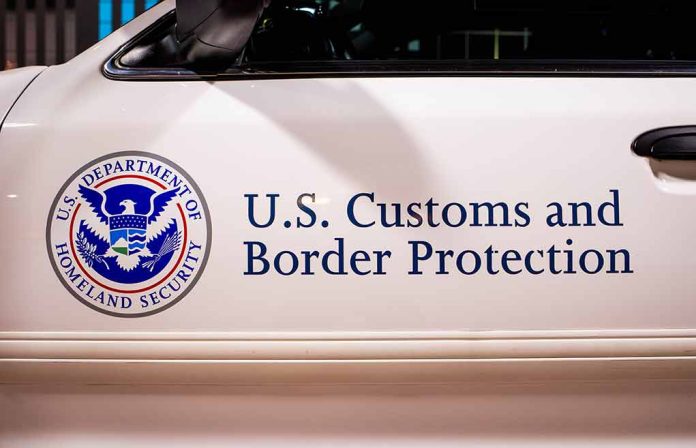
U.S. Customs and Border Protection (CBP) officers in Chicago intercepted a massive shipment of counterfeit Forever stamps from China, potentially saving the U.S. Postal Service over $118,000 in revenue.
Key Takeaways
- CBP seized over 161,000 counterfeit U.S. Forever stamps from China at Chicago’s International Mail Branch.
- The fake stamps, if genuine, would have been valued at more than $118,000.
- Officers identified the counterfeits through low invoice values, routing, and concealment attempts.
- The incident highlights the increasing sophistication of counterfeit operations, especially during holiday seasons.
- Consumers are urged to purchase stamps only from authorized retailers to avoid fraud.
Massive Seizure of Counterfeit Stamps
In a significant blow to international counterfeiters, U.S. Customs and Border Protection officers at Chicago’s International Mail Branch recently intercepted over 161,000 fake U.S. Forever stamps originating from China. The counterfeit stamps were discovered in eight separate shipments, violating trademark laws and potentially defrauding the U.S. Postal Service of more than $118,000 in revenue.
The expert detection skills of CBP officers were crucial in identifying these sophisticated fakes. LaFonda D. Sutton-Burke, Director of Field Operations in Chicago, praised the officers’ efforts, emphasizing the importance of their role in protecting American consumers and the economy from fraudulent goods stating, “Our officers and specialists are some of the most highly trained in the nation, and their level of expertise is evident with these seizures. CBP officers were able to identify these very realistic counterfeits and stop them from reaching their destinations.”
161 fake forever stamps seized in Chicago. Interesting https://t.co/nr8xTMKbuO
— LadyD (@LadyD66158293) February 16, 2025
Sophisticated Counterfeiting Techniques
The seized stamps were described as “very realistic,” highlighting the increasing sophistication of counterfeit operations. CBP officers were able to identify the fakes through a combination of factors, including suspiciously low invoice values, unusual routing, and attempts at concealment by the counterfeiters.
This incident serves as a stark reminder of the challenges faced by law enforcement in combating increasingly advanced counterfeiting techniques. As the quality of fake stamps improves, it becomes more difficult for consumers to distinguish between genuine and counterfeit products.
Holiday Season Risks
The timing of this seizure is particularly significant, as counterfeit stamp activity typically increases around major holidays. With Valentine’s Day approaching, CBP officials warn that high-volume card-sending periods often see a surge in counterfeit stamp production and distribution.
“Counterfeiters only care about making a profit, They don’t care about the effect that fake postage has on your ability to send important mail and overall impacts the U.S. economy.” LaFonda D. Sutton-Burke went on to say. This statement underscores the broader implications of counterfeit stamps beyond just financial losses. The use of fake stamps can disrupt mail services and undermine the integrity of the postal system, affecting businesses and individuals alike.
Protecting Yourself from Fraud
In light of this seizure, CBP has issued a reminder to the public that authentic U.S. postage stamps are produced exclusively by the U.S. Bureau of Engraving & Printing. Consumers are strongly advised to purchase stamps only from authorized retailers to avoid falling victim to counterfeit schemes.
As counterfeiters continue to refine their techniques, vigilance from both law enforcement and consumers remains crucial. By working together and staying informed, we can help protect the integrity of our postal system and ensure that our hard-earned money goes to legitimate services rather than lining the pockets of international counterfeiters.
Sources:
CBP finds 161K fake US stamps in shipment from China
Nearly 162K counterfeit US ‘forever’ stamps from China seized in Chicago







